Our Blog
Renovate Your Home Interiors This Festive Season with Cretecent
The festive season is the perfect time to refresh your home and create a welcoming, vibrant atmosphere. Whether it’s about making new purchases, planning a getaway, or renovating your home to impress family and guests, a well-designed home sets the right mood for celebrations.
If home renovation is on your mind, you might be considering new furniture, fresh lighting, or even repainting. But one of the most effective ways to uplift your space is through a tile-on-tile application, giving your floors and walls a fresh look without the mess of traditional renovation.
Tiles have a profound impact on the aesthetic of your interiors, and using the right adhesive is essential to achieve that flawless finish. The tile-on-tile method is increasingly popular due to its efficiency and cost-effectiveness, saving time and resources while minimizing disruption. By using a top-quality tile adhesive, the installation process becomes smooth, durable, and less chaotic than conventional methods.
Before you dive into the process, there are a few things to keep in mind for optimal results:
Check for Cracks: Inspect your existing tiles for cracks or hollow spots. These should be repaired or replaced before applying new tiles.
Plan for Raised Flooring: Tile-on-tile application adds 1 to 3 centimeters to the floor height. You can make sure your door and window frames can accommodate this.
For the best results, consider Cretecent’s Vitron Tile Adhesive. Known for its thin-set installation, this adhesive works brilliantly for various tile sizes and even stone surfaces. Its polymer-blend formula ensures waterproofing and strong adhesion, making it ideal for natural stones and vitrified tiles alike. With Vitron, you can achieve a long-lasting, professional finish that will keep your home looking stunning through the festive season and beyond.
As a leader in the tile adhesive industry, Cretecent offers high-performance solutions designed with advanced technology. Each product ensures top-notch results, providing you with peace of mind for every tiling project.
Are you ready to give your home the festive upgrade it deserves? Whether it’s tile-on-tile or any other tiling need, Cretecent promises nothing less than perfection, helping you create a space that welcomes family and friends with festive warmth and beauty.
Why Tile Adhesive is the Best Choice for Fixing Tiles?
Choosing the right material for fixing tiles is essential for a long-lasting and durable installation. Whether for commercial or residential buildings, selecting the proper adhesive can make a significant difference. Traditionally, cement was widely used for tile installation, but modern tile adhesives offer clear advantages over cement, making them a preferred option today.
In this blog, we’ll explore what tile adhesive is, the common challenges faced during tile fixing, and why tile adhesive is generally a better option than cement.
What is Tile Adhesive?
Tile adhesive is a pre-mixed mixture of well-graded fine sand, ordinary Portland cement, and special additives that improve its performance. These quality materials provide flexibility and strength, making them ideal for laying tiles and creating a stronger foundation. Unlike cement, tile adhesives are specifically formulated to handle the stress and weight of tiles, especially for large formats and in areas prone to movement or moisture.
Tile adhesives come in different formulations, including polymer-modified and cement-based options, tailored for specific applications like ceramic, porcelain, or natural stone tiles.
Challenges of Fixing Tiles with Cement
Although cement has been traditionally used for tile installation, it presents several challenges:
Cracks and Loose Tiles
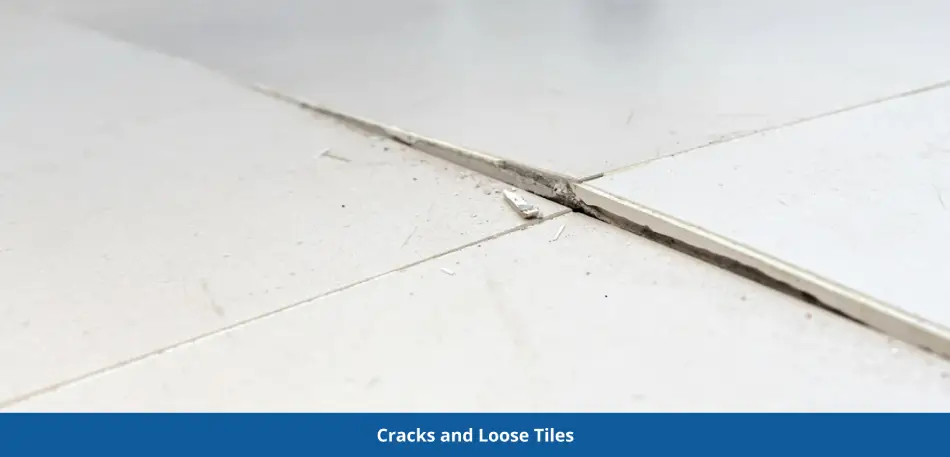
Tiles fixed with cement often experience cracks and loosen over time due to improper bonding or uneven curing. Cement is not designed to handle the stress caused by expansion and contraction, which may result in poor adhesion, causing tiles to come loose or crack under pressure.
Surface Preparation
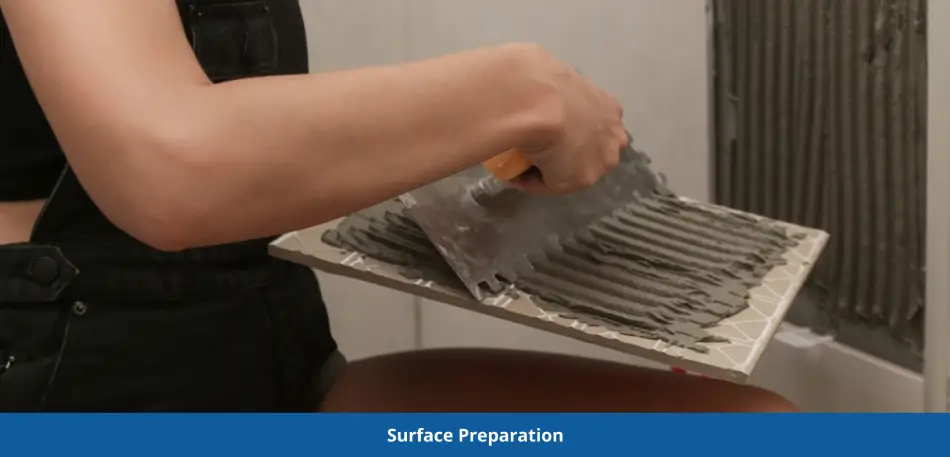
Cement requires meticulous surface preparation. Uneven or rough surfaces can lead to weak bonding, resulting in unstable tiles. Tile adhesives, on the other hand, offer greater flexibility when dealing with imperfect surfaces, providing better adherence.
Moisture Problems
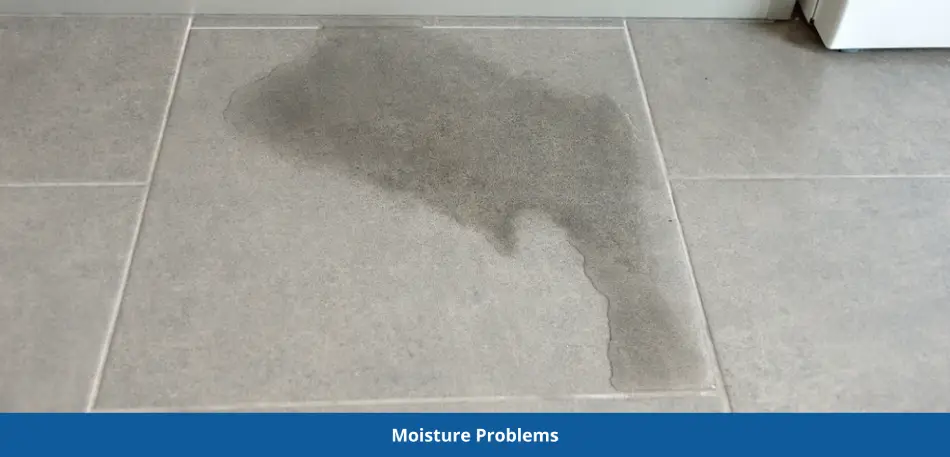
Cement is highly absorbent and prone to moisture-related problems, making it unsuitable for areas like bathrooms or kitchens where moisture is prevalent. Moisture can weaken the bond between the tile and the substrate, leading to eventual failure. Tile adhesives are designed with moisture resistance, preventing such issues.
Temperature Sensitivity
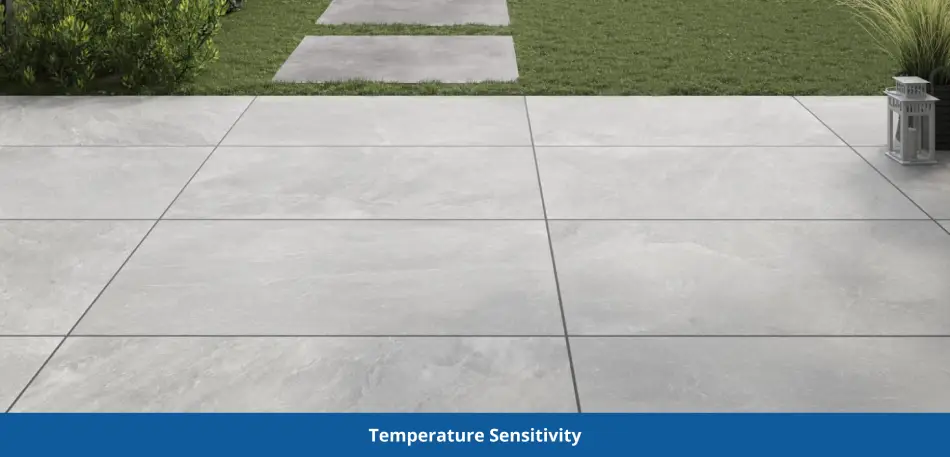
Cement does not offer much flexibility, which makes it vulnerable to temperature changes. As tiles and surfaces expand and contract with temperature fluctuations, cement may crack, compromising the tile installation. Tile adhesives are designed to accommodate such movements, reducing the likelihood of cracking.
Why Tile Adhesive is a Better Choice
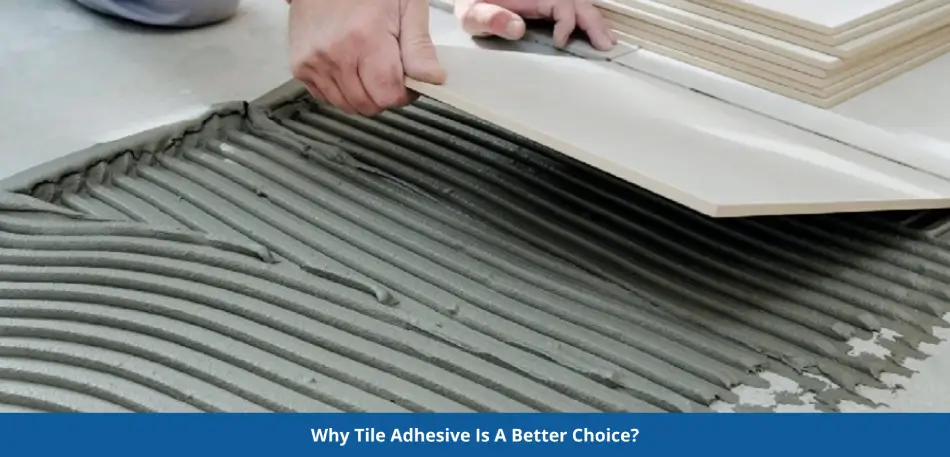
Tile adhesives have become the material of choice for tile installation, offering several advantages over traditional cement:
Better Flexibility
Unlike cement, tile adhesive allows natural expansion and contraction of tiles due to temperature changes. This flexibility reduces the risk of cracking and helps the tiles stay securely in place over time.
Moisture Resistance
For areas like kitchens, bathrooms, and even swimming pools, tile adhesive is far more effective than cement. It offers superior moisture resistance, ensuring the tiles remain intact even in humid or wet conditions.
Superior Bonding Strength
Tile adhesives are specifically formulated to provide strong adhesion, making them ideal for various tile types such as porcelain, ceramic, and natural stone. They also work better on vertical surfaces and can handle the weight of large, heavy tiles without slipping.
Ease of Application
Tile adhesives are easier to apply compared to cement. They spread evenly and smoothly, allowing for quick and efficient installation. They also provide a longer open time, meaning you have more time to adjust tiles before the adhesive sets.
Faster Installation
Using tile adhesive typically speeds up the installation process compared to cement. Tile adhesives are pre-mixed and require only water to activate, making them more convenient for installers. Cement, on the other hand, requires a more labor-intensive process and more time for curing.
Conclusion: Tile Adhesive – A Modern Solution
While cement was once the go-to material for tile fixing, modern tile adhesives have become the better choice for most applications. Their flexibility, moisture resistance, superior bonding strength, and ease of use make them more suitable for long-lasting tile installations. Whether for residential or commercial projects, tile adhesive provides a more durable and effective solution than traditional cement, ensuring your tiles stay in place and look great for years to come.
Explore our website to know more about products.
Significant Benefits of Using Wall Tile Adhesive
Tiles are widely used in the construction industry due to their durability and aesthetic appeal, enhancing both walls and flooring. Traditionally, cement-based adhesives were used to install tiles, but as tiles have grown larger, heavier, and more vitrified, cement has struggled to provide the necessary bonding strength. Wall tile adhesives have emerged as the superior choice, offering easy application and excellent bonding strength for a variety of surfaces.
In this blog, we’ll explore the key factors of tile adhesives and their significant benefits over traditional methods.
Overview
Wall tile adhesive is a flexible, polymer-enhanced glue designed to bond various types of tiles, such as clay, ceramic, and mosaic, to surfaces like walls and floors. Typically, tile adhesives consist of polymers, Portland cement, aggregate particles, and additional additives. These adhesives offer dependable performance, are effective for tiles of any size, and improve the overall quality of surface bonding.
Special additives in the adhesive mix reduce shrinkage and enhance both strength and longevity, ensuring a more secure and durable installation.
Applications of Wall Tile Adhesives
Here are some common applications of wall tile adhesives:
Kitchens and Bathrooms
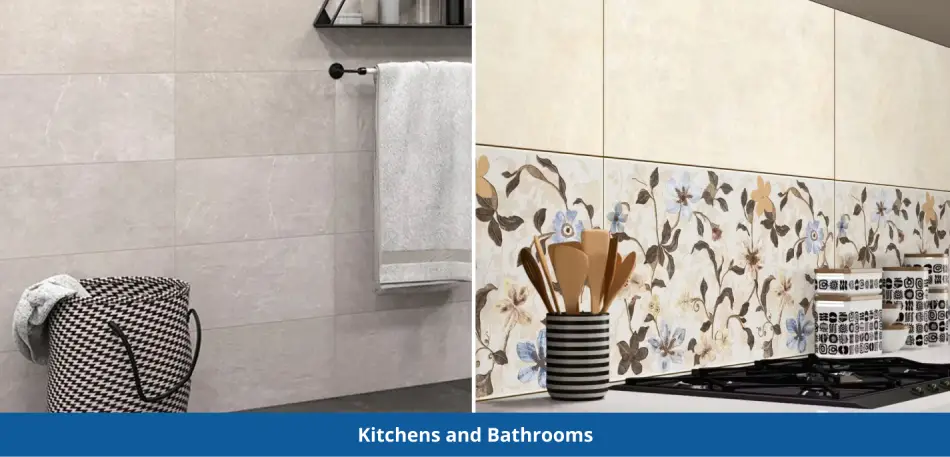
Wall tile adhesives are ideal for moisture-prone areas like kitchens and bathrooms. Unlike traditional methods, they offer a watertight seal, resisting water and preventing mold and mildew growth. This ensures that the tiles maintain their structural integrity and appearance over time.
Exteriors
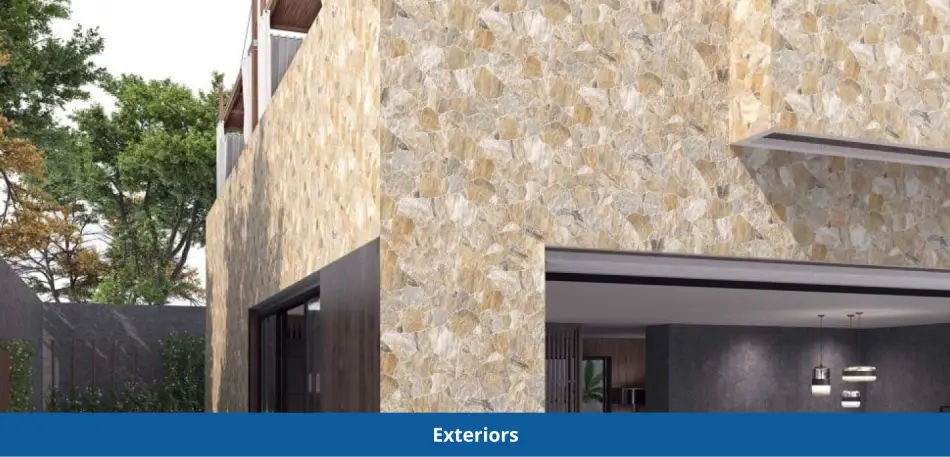
For exterior surfaces, tile adhesives offer durability and thermal stability, keeping tiles in place even under environmental stress. They help maintain a stable internal climate while preserving the outward appearance of your building.
Swimming Pools
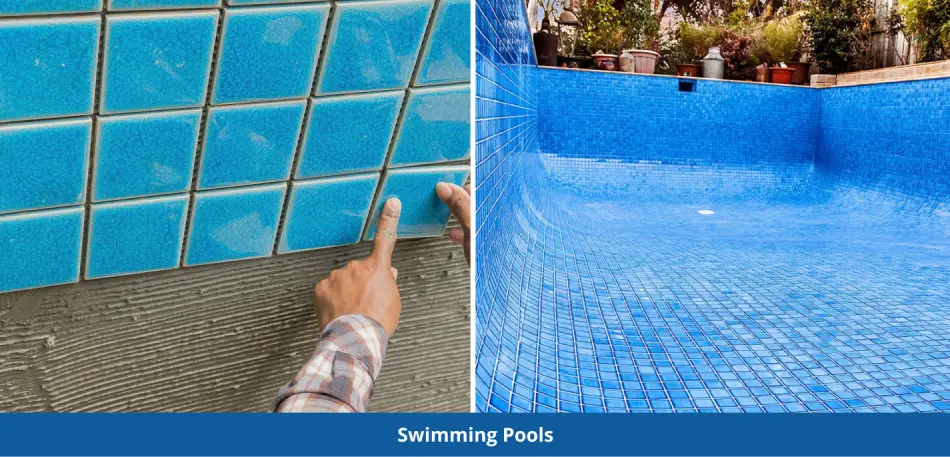
Swimming pools present a unique challenge due to constant water exposure and chemicals. Tile adhesives are specially formulated to withstand these conditions, offering improved chemical resistance and bonding strength. This makes them the ideal solution for pool installations, where durability and appearance are critical.
Key Benefits of Wall Tile Adhesives
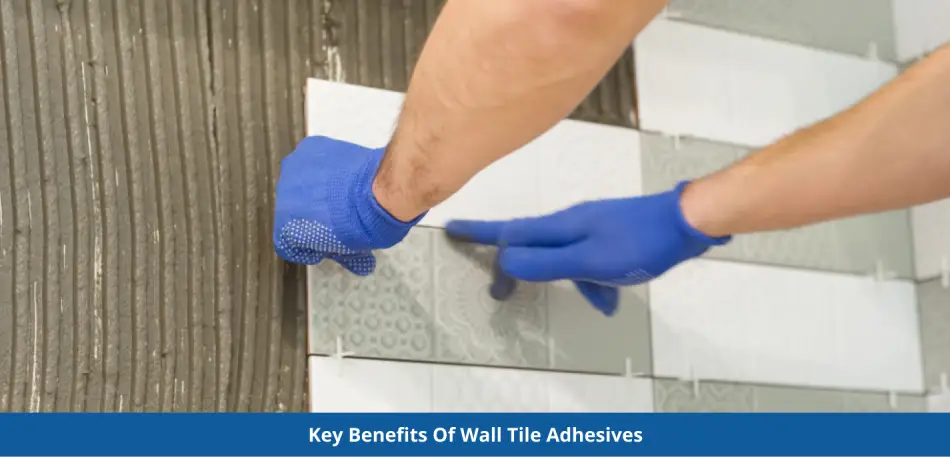
- Versatility Across Multiple Surfaces
Tile adhesives can be directly applied to various surfaces, including concrete, plasterboard, drywall, and cement finishes. They work well on both smooth and non-porous surfaces, making them flexible for different project requirements and allowing for faster installation. - Superior Tensile Strength
Tile adhesives are engineered with high tensile strength, preventing cracks and weakening over time, even under regular wear and tear. This makes them a reliable option for long-term installations, providing structural support for both residential and commercial projects. - Compatibility with Different Materials
While traditional adhesives may be limited in use, wall tile adhesives work well with ceramic, porcelain, glass, and even some natural stone. This wide compatibility ensures easier installation and better results across various tiling surfaces. - Easy Removal for Renovations
In case of renovations or tile replacements, tile adhesives allow for easy removal without damaging the underlying surface. This makes future updates or changes hassle-free, preserving the integrity of walls and floors for subsequent installations. - Cost-Effective Solution
Although tile adhesives may seem more expensive initially, their long-term benefits make them a cost-effective solution. With their resilience and strong bonding capacity, they reduce the need for frequent maintenance and repairs, saving money in the long run.
Final Thoughts
Wall tile adhesives are an excellent choice for modern construction due to their unmatched strength, versatility, and ease of use. Although they may appear costly at first glance, their long-term benefits make them a worthwhile investment. Whether for residential or commercial projects, tile adhesives provide superior performance, ensuring your tiles remain securely in place for years to come. Visit our website!


